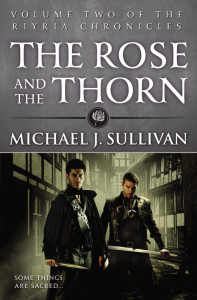Bromance

“It is those who desire the good of their friends for the friends’ sake that are most truly friends, because each loves the other for what he is, and not for any incidental quality.”
According to Wikipedia, Dave Carnie coined the term bromance in Skateboard Magazine in the 1990s, referring to the close relationships between skaters. The term bled out into the media and soon House and Wilson were so labeled. So were the Men in Black, even Kirk and Spock who predated bromance by decades. Thelma and Louise are also a bromance of sorts—you wouldn’t call it a sismance, would you?
In fiction, Bromance applies to any same sex characters who have a non-sexual, homosocial relationship. Usually this includes lots of conflict resulting from an unlikely pairing similar to a traditional romance. He’s from Winterfell, she’s from Hogwartz, can they ever find common ground? The glue in a romance is sexual attraction and doesn’t always have to be explained; in a bromance the connection is more event driven and usually part of the story.
Before the 1990s bromances were often found in the form of buddy cop stories and made popular by such movies and TV shows as: Lethal Weapon, 48 Hours, Cagney and Lacy and Starsky and Hutch. Police shows were prone to such fare because officers tend to work in pairs, but the tradition goes further back—seriously far back.
The first of what we now call a bromance has to be The Epic of Gilgamesh, with Gilgamesh and Enkidu starring in the first twelve part fantasy series. As in most bromances, they hated each other at the start then teamed up to kick butt. I’m sure if I could read the original first-edition tablet I’d find some witty one liners.
Other pairings followed and soon we had Holmes and Watson, and Sawyer and Finn. And so the popular trend of good boy/bad boy, or just the strangely gifted and the normal was born. With movies came the partnering of Laurel and Hardy, Abbot and Costello, Hope and Crosby, Easy Rider and the Odd Couple.
What makes the tradition of a buddy/bromance so enduring? Lacking the extra baggage of a traditional romance, a bromance is almost always comedic. Friends, like siblings, have a natural tendency to pick on each other, and their intimate relationship affords ample opportunities for knowing just where to stick the knife. Insulting your romantic love interest isn’t cool, but making a fool of your best friend is always a delight. This dichotomy, this appearance of dislike, even hatred, is acceptable because it’s held up by fierce loyalty that often goes unseen and unspoken until the knife or gun comes out. When faced with real danger, true colors fly and that’s when hearts are tugged. There’s few more moving things than a block of granite forced to admit he cares.
Just as a romance can provide a window into the sort of perfect relationship people fantasize about, the bromance supplies that perfect friendship often longed for—the friend that won’t let you get away with anything, but who will walk through Hell for you.
Growing up in the sixties I watched shows like I Spy and watched movies such as Butch Cassidy and the Sundance Kid (later made into the television show Alias Smith and Jones which I also watched with great regularity.) In both cases the men appeared flippant and carefree, but cared deeply for each other. This affection was hard won though years of close calls where each risked his life to save the other.
I suppose that ideal, those concepts stayed with me, a strange sort of earthy fertilizer that lined the bottom of my mind. Wasn’t until two years after I’d published the first Royce and Hadrian story that someone pointed out that it was like Butch and Sundance in Middle Earth. One big, one little, one nice, one mean, one distant, the other friendly, one cynical, one idealistic, the perfect odd couple, but both loyal to each other beyond reason. At least beyond what either are willing to admit because bromances are private affairs. Tough guys aren’t lippy and feelings are slipped between the cracks, doled out in a secret shorthand that only they know. Part of the fun with any bromance is watching it, learning that inside language, sharing the wry smile and the eye roll, and knowing when a joke is actually a promise, and a promise a joke. It’s then that you too—as the reader or viewer—are part of that team, that pair that work so well together. Then when one tells the jailor holding him captive that his friend is going to kill said jailor, you know it’s not a promise or a joke, but a fact. Readers smile at this, at the words on a page in the silence of an empty room. Such is the power of the bromance.
I just wish there was a better, non-gender, non-incestuous term than one derived from brother–romance pairing. How about a word based, on more appropriate pairings like: Friends-Fic, Teamtale, Duoture (adventure-duo), Budory (Buddy-story)? Of course we could just stick with science fiction, fantasy, thrillers, romance, horror, or maybe just call everything that isn’t true, fiction because putting everything in its own drawer helps you find what you want, but rarely allows you to discover anything new.
How about good-book?
…
Hadrian and Royce’s adventure continues in THE ROSE AND THE THORN (US | UK | AUS), book two of the Riyria Chronicles, out this week! Read an excerpt or start from the beginning of the series with THE CROWN TOWER (US | UK | AUS).

